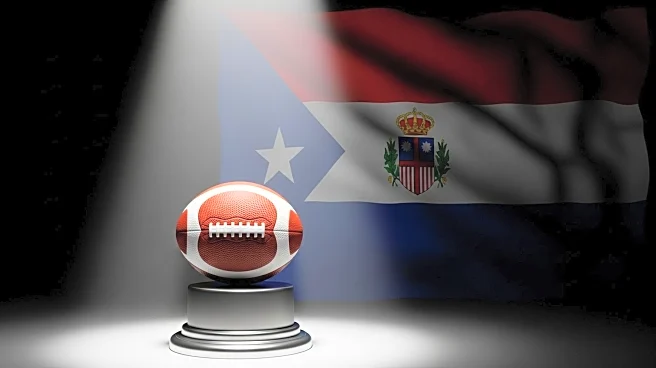What is the story about?
What's Happening?
Moshe Zaures, the president of the Israel Football Association, has responded to calls for Israel's national teams to be suspended from international competitions. Zaures described these calls as hypocritical, emphasizing that those advocating for Israel's exclusion overlook the context of recent attacks on Israel and the ongoing conflict. He questioned the benefits of isolating Israel from international sports. Israel's national team is currently preparing for an away match against Italy in the European qualifiers for the 2026 World Cup, where they stand third in the group with nine points after seven rounds.
Why It's Important?
The calls for suspension of Israel's national teams from international tournaments reflect broader geopolitical tensions and the intersection of sports and politics. Such actions could impact Israel's participation in global sports events, affecting athletes and fans. The debate highlights the role of sports as a platform for political expression and the potential consequences of political conflicts on international sports relations. The situation underscores the challenges faced by sports organizations in navigating political pressures while maintaining their commitment to inclusivity and fair competition.
What's Next?
Israel's upcoming match against Italy in the World Cup qualifiers will be a critical test for the national team, both in terms of performance and the political scrutiny surrounding their participation. The outcome of this match could influence public opinion and further discussions on Israel's role in international sports. Stakeholders, including sports governing bodies and political leaders, may need to address the implications of these calls for suspension and consider the broader impact on international sports diplomacy.
Beyond the Headlines
The situation raises ethical questions about the use of sports as a tool for political leverage and the responsibilities of sports organizations in addressing geopolitical conflicts. It also highlights the potential for long-term shifts in how international sports events are perceived and managed in politically sensitive contexts.















